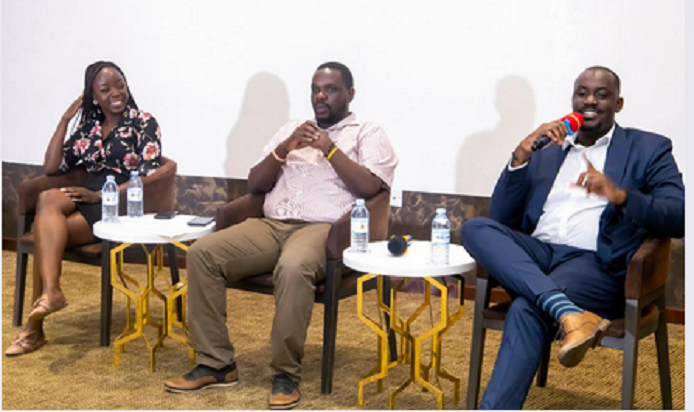Market Women in Uganda (photo credit: IST)
“Market Women” are the ubiquitous vendors who populate local markets throughout Uganda and sub-Saharan Africa. In many ways, they are the lifeblood of most African economies – in Uganda, the “informal sector” accounts for 75% of the total working population – making sure that food and many other household items get from farms, factories, and importers to the families who need them.
These vendors, the vast majority of whom are women, often work up to 16 hours a day. Their businesses typically demand their time and attention to the exclusion of most other activities, including health care.
A 2022 research study, conducted by the Institute for Social Transformation (IST) and CTI-LifeHealth, found that most market women ignore their health and wellness needs, relying on OTC drugs until the cause of pain or discomfort is often beyond cure.
One of the respondents told a typical story: “I fear going to the hospital because the waiting lines are (so) long that most times it takes a whole day, and you still fail to see a doctor. This makes you lose money. So, I don’t waste my time unless the situation is beyond the painkiller.” For many market women, the delay is disastrous, often fatal.
Another interviewee in the study found out, too late, that she had severe diabetes, and lost both hands to the disease. “How I wish I had friends who are doctors,” she said. “How I wish I had balanced my time for work and access to health services for regular health checks.”
In the hand-to-mouth existence of most African market women, however, life/work balance is unheard of, or a dream. In Uganda today, the doctor-patient ratio is approximately 1:25,000, a mere 4% of the internationally recommended standard, according to the World Health Organization. To make matters worse, the IST-CTI survey found that women’s access to health services is 21% less than men’s.
Now, all that is about to change…
For a number of years, IST has been working to identify and address the challenges faced by Uganda’s market women, access to health services being primary. CTI has now joined the initiative, bringing its ground-breaking LifeHealth digital infrastructure platform directly to bear on the problem.
LifeHealth applies a patient-centric approach to personalized, precision-oriented medicine, incorporating online medical consultation, detailed patient information, artificial intelligence, digital diagnostics, and data management and analytics. All the key stakeholders are part of the platform, including patients, hospitals, doctors, nurses, insurance companies, diagnostic labs, and pharmacies.
In announcing the alliance, IST’s Executive Director, Moureen Wagubi, said, “Access to affordable health services by market women is not a luxury. Health is the source of women’s development. So, given the enormous role market women play in Uganda’s economy, when their health is jeopardized, the economy will crumble. Therefore, priority should be given to ensure that market women have full access to affordable health care services.”
Dr. Michelle Barry, the CEO of CTI-LifeHealth, added, “Enabling women with technology to help manage their and their children’s health has, until now, been a privilege. Our patient-centric digital health platform will make it easy and affordable for these hard-working but underserved women to receive quality health services and education to improve their well-being. That, in turn, will inevitably raise their socioeconomic status, which will uplift Uganda’s future.” Eventually, Dr. Barry noted, the program will expand to urban and rural areas throughout Africa and beyond, bringing better health and welfare to underserved populations everywhere.





